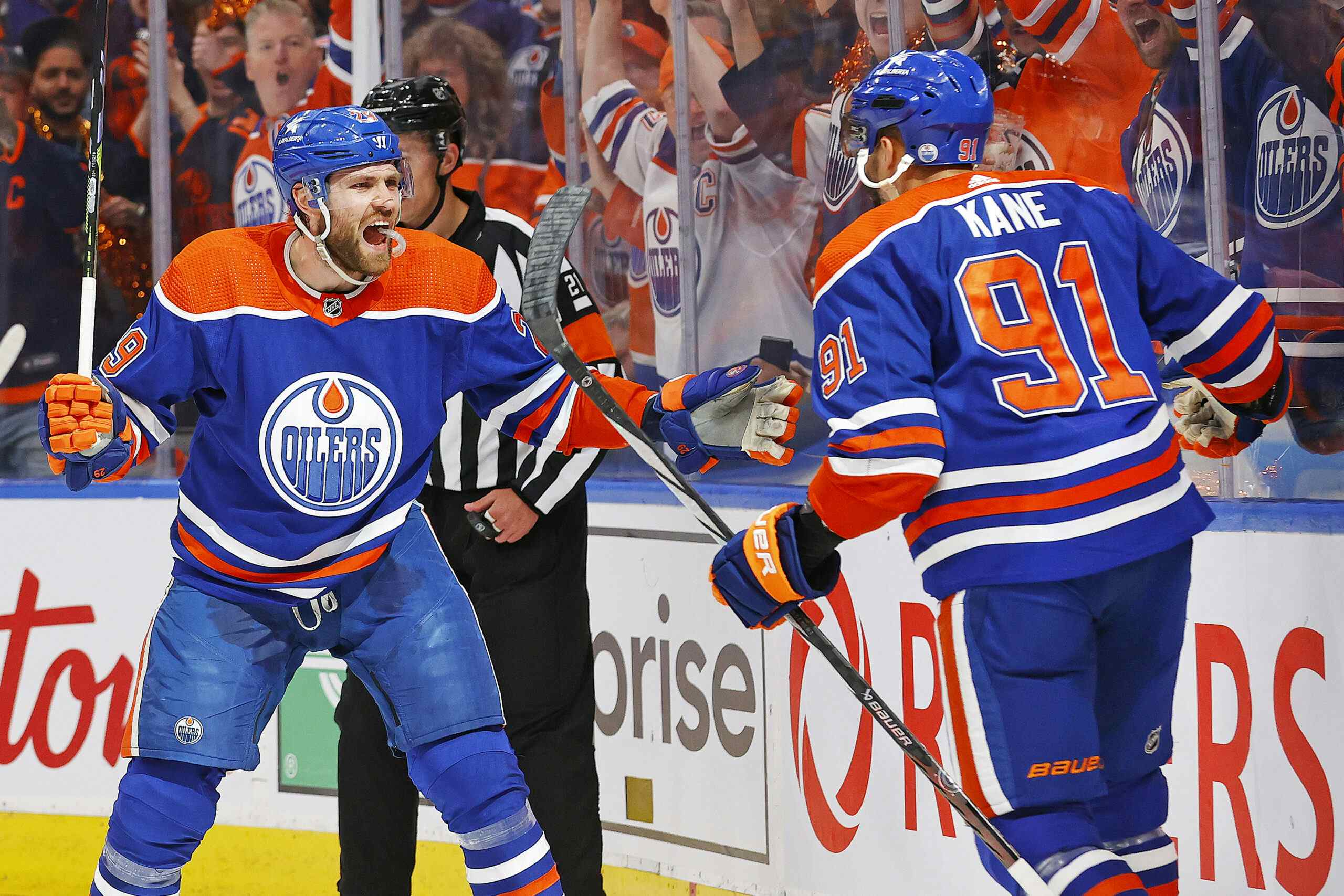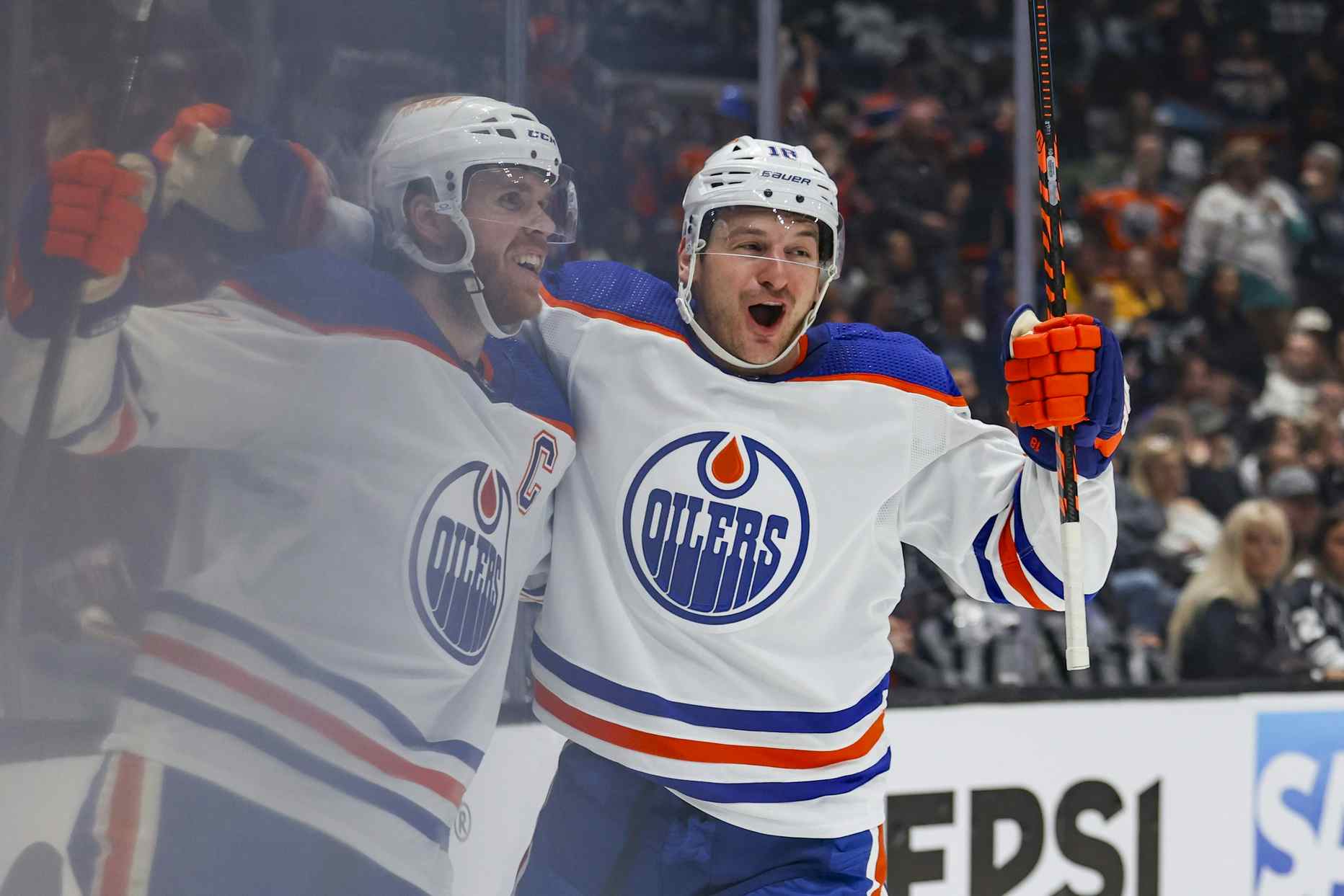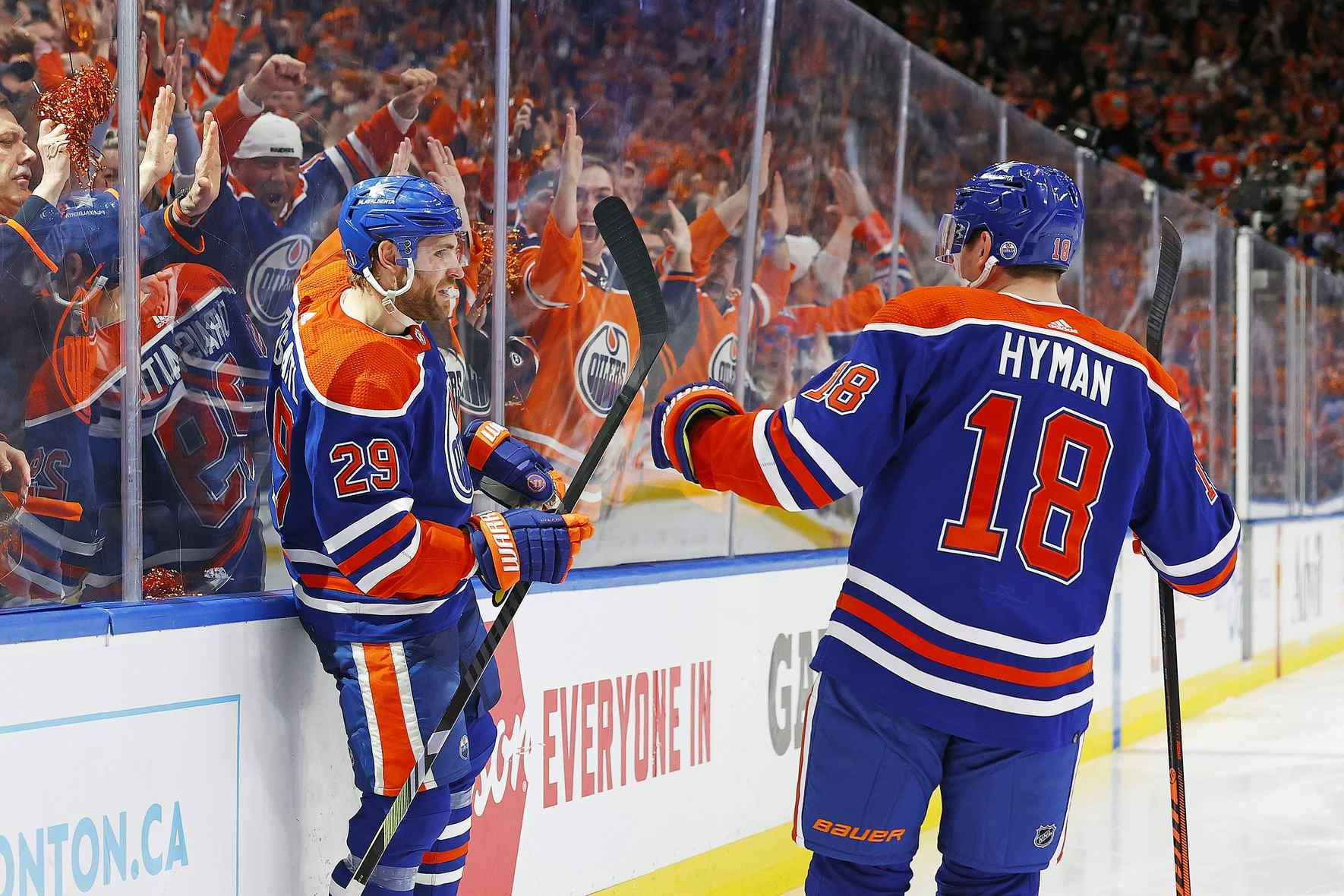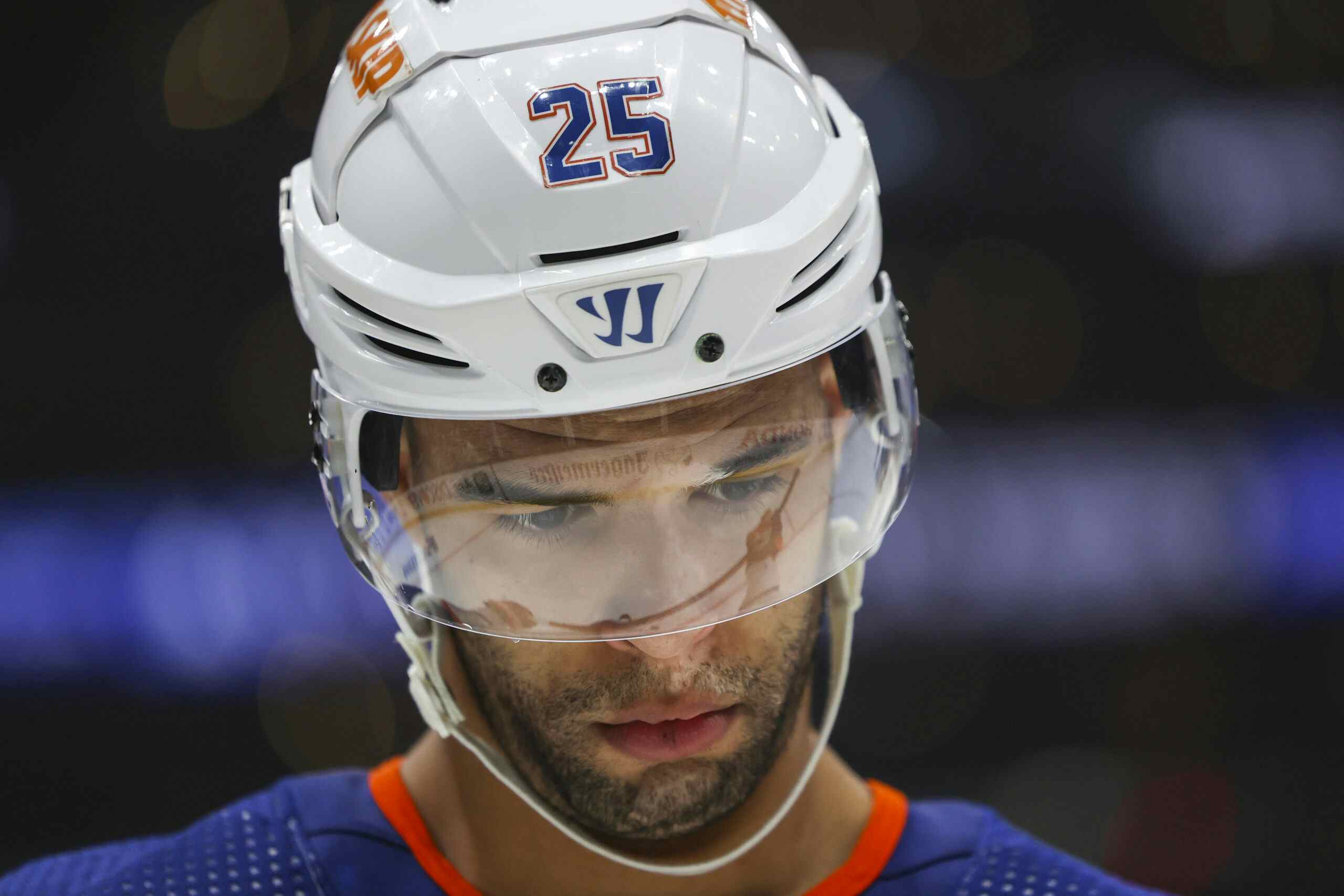Veterans on Expiring Contracts

In a league like the NHL which guarantees every contract, employing secondary players on short-term deals can have a lot of value.
Short-term deals offer flexibility. If a player struggles, a team isn’t committed long-term. If the salary cap falls, a team has room to maneuver. If a new coach is brought in, it’s easier to adjust the supporting cast to the style of game he preaches.
And every year at the trade deadline, players on expiring contracts get sent away for draft picks, the lifeblood of any organization.
The Summer

Oilers general manager Peter Chiarelli was on Oilers Now a little over a week ago, and one of the things he said which caught my attention related to the future of Derek Roy. Chiarelli was asked about the Oilers’ ability to run Ryan Nugent-Hopkins, Connor McDavid and Leon Draisaitl at centre, and he said the right things – players can move to the wing, internal competition is good, nobody’s guaranteed a roster spot – and then brought up Roy.
“I know Derek Roy had some success last year with Yakupov,” said Chiarelli, “and I haven’t ruled that out yet, either, but there’s a lot of different things we’re looking at.”
Because Chiarelli brought Roy’s name up without any prompting on the part of host Bob Stauffer, it’s reasonable to conclude that the G.M. is doing more than paying lip service here; Roy is a realistic possibility to be re-signed.
There are a lot of good reasons to consider Roy, but one of the most compelling is that he’s not likely to be in demand, which should mean the Oilers can insist on a one-year contract at a reasonable price-point. That in turn allows them to use him as a disposable safety net; he can add some experience down the middle and then be sent down the line at the trade deadline or in the summer if (for example) Leon Draisaitl shows that he’s ready to replace him.
Outside of key pieces (i.e. legitimate top-four defencemen), the Oilers should probably stick to the one-year rule whenever possible in bringing in outside help, particularly in cases where that outside help is older. If they’re taking on defensive stopgaps, adding a player like Dan Boyle in the final year of his contract makes more sense than signing this summer’s version of Nikita Nikitin. If they’re taking on another team’s salary cap headache, pending free agent Michael Grabner is a much better choice than two years of Bryan Bickell. If they want to add a third-line forward, signing Derek Roy or one of this season’s bargain basement wingers (I don’t know who will still be looking for a contract on July 15, but there always seems to be at least one useful winger just looking for a place out of the cold) is a better option than giving a long-term contract to Matt Hendricks or Boyd Gordon.

Cap hell is a place teams generally only land in if they’ve been a little too generous with their depth pieces. Those depth places can usually be found cheaply on the free agent market by an intelligent team, or replaced internally by the next batch of prospects. As the Oilers find their way out of the basement, they’ll need to find fewer pieces like Gordon and more like Anton Lander if they are to avoid salary cap headaches.
And, for a team like the Oilers who won’t be winning the Cup in 2016, having a bunch of rental players to cash for draft picks at the deadline is a nice bonus, especially given the loss of picks that was involved in hiring Chiarelli and coach Todd McLellan.
The Current Roster

The desirability of greater flexibility and less overall expenditure on depth pieces means that, with perhaps one exception, most of Edmonton’s pending free agents are entering their final campaigns with the club.
Boyd Gordon was in my view a solid addition when he was signed, even at a dear price-point, because the Oilers were in desperate need of a player exactly like him. He logged some brutal minutes, provided dependable play at a critical position and for the duration of his deal has not been replaceable internally. That’s now changed; with Anton Lander signed to a six-figure deal for the next two seasons the days of paying a fourth-line (albeit an awfully useful fourth-line) centre $3.0 million are over.
There’s no urgency in moving Gordon down the line – he’ll certainly have value at the trade deadline to almost any team and lots of clubs will be looking to dump rather than take on money this summer – but the odds of him returning next season must be slim.

Teddy Purcell is another player on an expiring deal. Some have suggested he’s buyout-bound but a) he’s still useful, b) he should bring back a pick at the draft and c) there’s a lot of value in getting his money off the books at year-end rather than paying him $1.5 million next year not to play. The same logic broadly holds true for Nikita Nikitin, but both his usefulness and likely return are lower and the Oilers are close enough to the cap as-is that a buyout may be unavoidable there.
Rob Klinkhammer may be the exception to the rule, just because he’s so cheap. He’s big, fast, physical and has more offensive ability than he showed for the Oilers (he had 11 goals and 20 points in 2013-14) and provides it all for $750,000. He may not have enough value to bring back a pick at the deadline, but he’s exactly the kind of guy any team can afford as its No. 12-14 forward and he’s above-average in that role.
Going forward, the Oilers ideally will stock their depth positions with cheap, young players who have worked their way up through the system. Failing that, cheap (when possible) veterans on short-term deals are the best option.
RECENTLY BY JONATHAN WILLIS
- Is Dougie Hamilton worth signing to an offer sheet?
- Ottawa, Edmonton and goaltending
- Edmonton extends Andrew Miller, Brad Hunt
- Oilers’ coaching picture is becoming clearer
- The lessons Edmonton should take from Justin Schultz’s development
- Is Adam McQuaid a good place to spend $2.5 million
- Taking advantage of cap hell: Tampa Bay Lightning
- Follow Jonathan Willis on Twitter
Recent articles from Jonathan Willis





